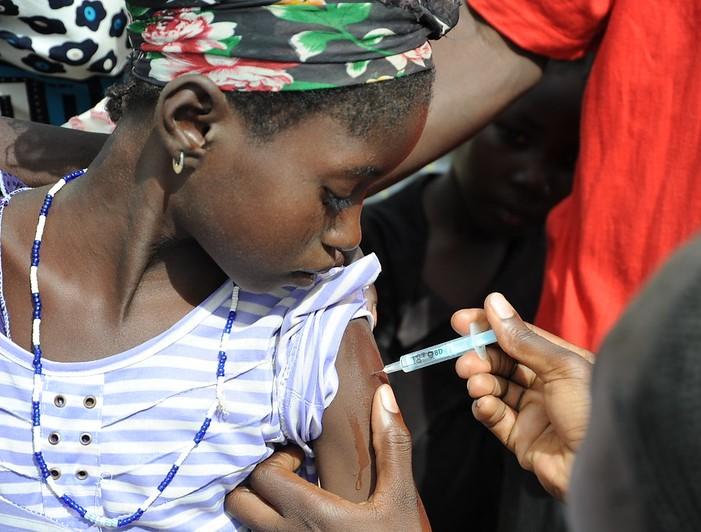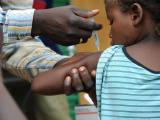A five-valent (five-strain) meningococcal vaccine targeting serogroups A, C, W, Y, and X (NmCV-5) was safe and non-inferior to the quadrivalent (four-strain) vaccine MenACWY-D in a large phase 3 trial conducted in Mali and Gambia. Results of the study were published today in the New England Journal of Medicine.
The 1,800 participants in the trial ranged in age from 2 to 29 years and were assigned to receive either the quadrivalent MenACWY-D vaccine or the NmCV-5 vaccine. The main outcome was serogroup X responses in the NmCV-5 group compared to the lowest response among the MenACWY-D serogroups.
More than 200,000 deaths in 2019
Bacterial meningitis has caused epidemics, outbreaks, and thousands of deaths in Africa’s meningitis belt for more than 200 years. Beginning in 2010, mass vaccination campaigns with the MenAfriVac vaccine in Africa have nearly eliminated illnesses caused by serogroup A.
But six serogroups of meningococcus (A, B, C, W, X, and Y) can cause invasive disease, and recently outbreaks caused by serogroup X have been reported in Africa. In 2019, the World Health Organization (WHO) said there were more than 2.5 million cases of meningitis worldwide, which resulted in more than 236,000 deaths.
In November 2020, the World Health Assembly announced the global road map for the Defeating Meningitis by 2030 program. Th goal of the program is to reduce the rate of vaccine-preventable disease by 50% and mortality by 70% during the next decade.
A five-valent vaccine would target more strains of the bacteria and could be another tool in the arsenal to reduce disease burden in Africa.
97.2% of the participants had a serogroup X response
In the phase 3 trial, the vaccine was tested in a 2:1 ratio of the NmCV-5 vaccine (400 participants) or the MenACWY-D vaccine (200 participants). Both vaccines were administered as a single intramuscular injection, and endpoints were seroresponse and the geometric mean titer (GMT) measured 28 days after vaccination, as well as safety events.
The percentages of participants with a seroresponse to serogroups A, C, W, and Y at 28 days after vaccination with NmCV-5 ranged from 70.5% (95% confidence interval [CI], 67.8% to 73.2%) for serogroup A to 98.5% (95% CI, 97.6% to 99.2%) for serogroup W. A total of 97.2% (95% CI, 96.0% to 98.1%) of the participants had a serogroup X response, the authors said.
In the MenACWY-D group, seroresponse rates after vaccination ranged from 50.0% (95% CI, 45.8% to 54.2%) for serogroup A to 97.4% (95% CI, 95.6% to 98.6%) for serogroup W.
NmCV-5 may emerge as a tool to support meningococcal disease control.
"These data are expected to support the licensure and WHO prequalification of NmCV-5 as a pentavalent meningococcal conjugate vaccine, including for serogroup X," the authors said "NmCV-5 may emerge as a tool to support meningococcal disease control, particularly across the meningitis belt of sub-Saharan Africa, and thus may contribute to epidemic elimination and the other goals of the global road map for the Defeating Meningitis by 2030 program."
In a commentary on the study, David Stephens, MD, of Emory University, writes that with the results of this trial, "We are a step closer to worldwide control of meningococcal disease and the burden of meningitis with these efforts."
We are a step closer to worldwide control of meningococcal disease.



















